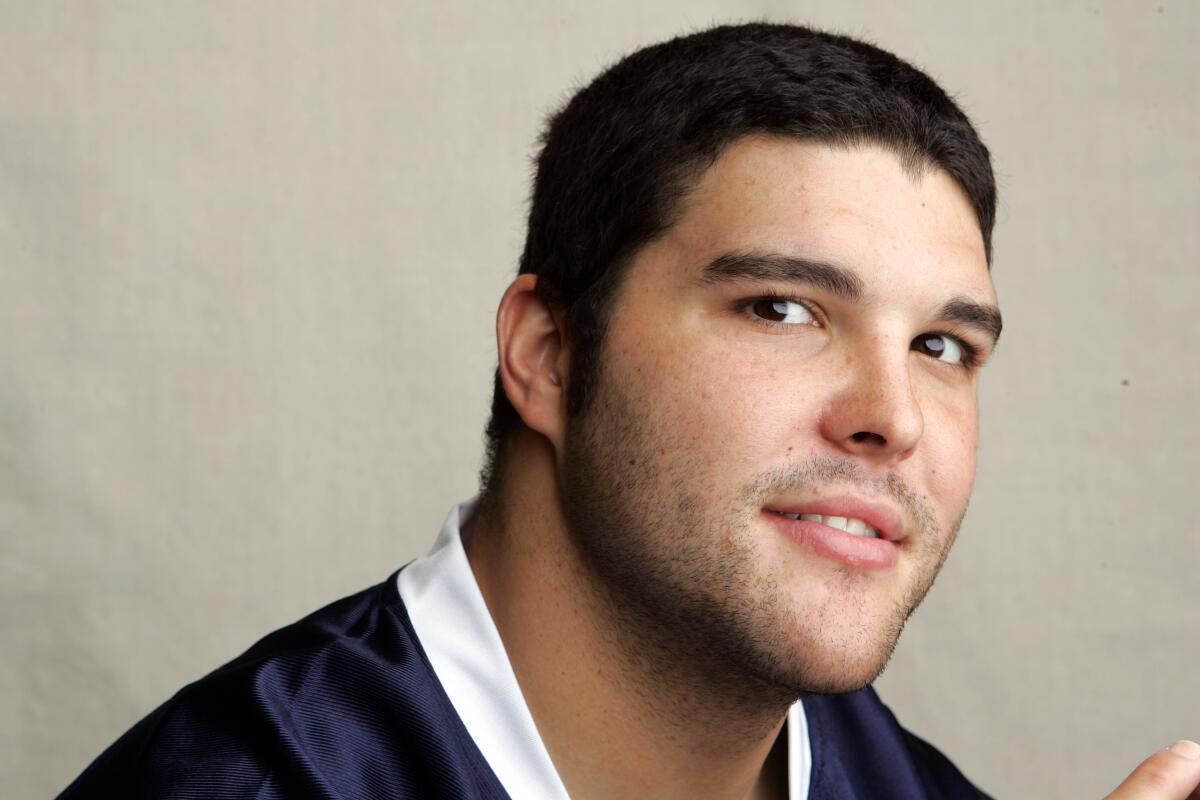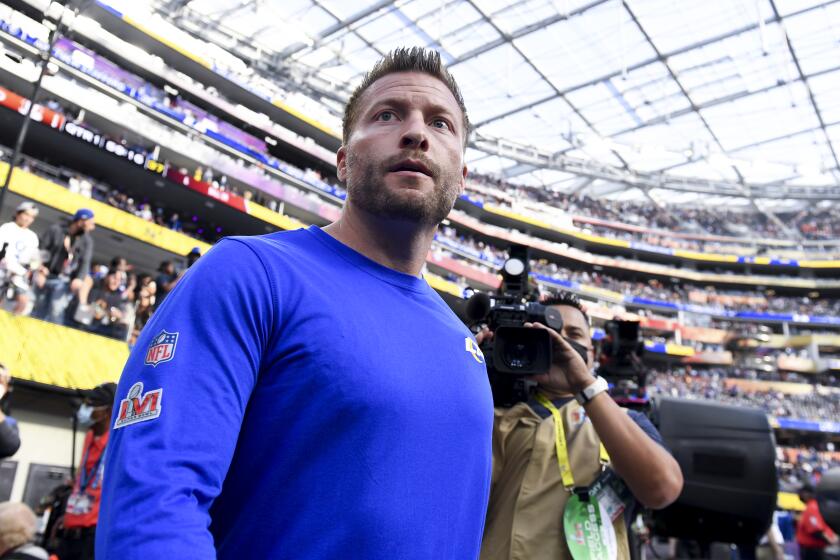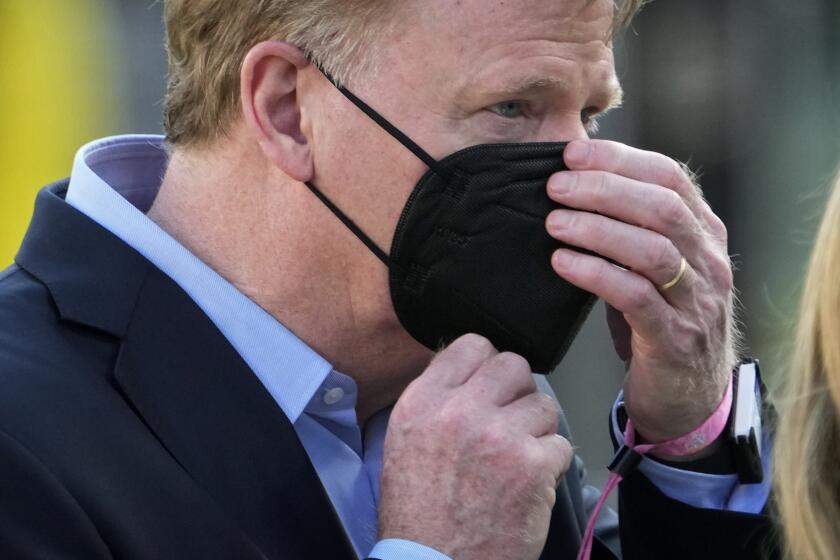Shane Olivea, former Chargers offensive lineman, dies at 40

Shane Olivea, an offensive lineman who helped block for LaDainian Tomlinson during the running back’s record 2006 season, has died at age 40.
- Share via
Shane Olivea, who started every game in the Chargers’ winningest regular season and blocked for Hall of Fame running back LaDainian Tomlinson in the same record-setting year, has died at the age of 40, the football club announced Thursday. The cause of death was not reported.
Olivea was the primary right tackle for three San Diego teams that reached the AFC playoffs between 2004 and 2008. He spent all of his four-year NFL career with the Chargers, who selected him in the seventh round of the 2004 draft.
A 6-foot-4, 312-pounder, Olivea helped to power a line that assisted Tomlinson to an NFL-record 29 touchdowns in the 2006 season.
Olivea’s block contributed to Tomlinson’s record-tying scoring run late in a December game that year against Denver. After the Chargers got the ball back quickly, the running back spoke up.
Sean McVay says he will keep coaching the Rams and has a revamped staff, but he can’t get Ukraine out of his mind since his fiancee has ties to the country.
“He came into the huddle and said, ‘I want all of you guys to join me in the end zone when I get it,’ ” said Olivea.
After the 7-yard rush off left tackle broke Shaun Alexander’s year-old record, the blockers rushed to Tomlinson in the end zone at Qualcomm Stadium and lifted him on their shoulders. Later, Tomlinson and Olivea bumped helmets and hugged.
“Once I got over the pylon, my initial thought process was to bring every guy on the offensive unit over to share that moment,” Tomlinson said after the Chargers — headed toward a 14-2 record — won, 48-20. “When we’re old and can’t play this game anymore, them are the moments we are going to remember, that we’ll be able to tell our kids, tell our grandchildren.”
Olivea’s NFL career would end within 16 months, when the lineman was only 26 years old.
Following a 2007 season in which he was benched and his weight ballooned to 390 pounds, Olivea left behind his Del Mar Home and checked into a drug treatment program in Rancho Mirage in April 2008.
The NFL is dropping its COVID-19 protocols, the league and NFL Players Assn. jointly announced Thursday in a memo to all 32 clubs.
He told the Columbus Dispatch in 2016 he’d developed an addiction to pain-killers following a grueling rookie year season in which he played 21 games, counting the preseason. He said the football team didn’t prescribe him the opiods. He got them in Tijuana, though he said his descent began when a friend gave him a Vicodin.
“There wasn’t one day in the NFL I wasn’t high on a pill after my rookie year,” Olivea told the newspaper.
“I was too full of pride,” he added in the same 2016 interview. “I always said that my pride got me to the NFL, and it got me to rehab. I’m an offensive lineman. You don’t show pain. We’re the tough guys on the team. We sort of suffer in silence. I wanted to reach out, that I needed help. I wanted to stop. I went through withdrawal, physical withdrawal. But I didn’t know how to ask for help. It almost killed me.”
In the same interview, Olivea said he had been clean of pain-killers for eight years. By then the Long Island native had returned to Ohio State, for which he started on the 2002 national championship team, and earned his degree.
More to Read
Go beyond the scoreboard
Get the latest on L.A.'s teams in the daily Sports Report newsletter.
You may occasionally receive promotional content from the Los Angeles Times.









